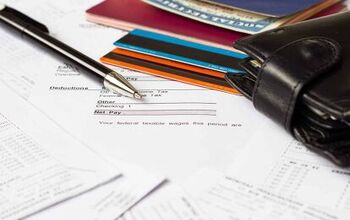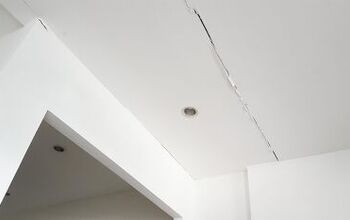What PSI Concrete For A Driveway? (Find Out Now!)

PSI, or pound per square inch, is the unit of measurement most often used to describe the compressive strength of concrete. When you buy concrete, it will be sold in various strengths, each of which is more or less suitable for people living in varying climatic conditions.
When trying to figure out what PSI concrete for the driveway is appropriate, the most important factor to consider is your climate. Homeowners in temperate areas of the country can get away with weaker concrete than those in other areas. The colder the weather, the higher the desired PSI should be.
The typical concrete strength for a driveway is 3000 to 4000 PSI. If you live in a warmer climate, a lower PSI may be appropriate. Having concrete with a higher PSI won’t hurt, as the driveway will simply be stronger. If you plan on parking heavy vehicles in your driveway, like RVs, a higher PSI will actually be beneficial.
Do You Need Concrete, Brick, or Stone Pros?
Get free, zero-commitment quotes from pro contractors near you.

What Does PSI Have to Do With Concrete?
Concrete can come in many different types with various levels of compositions, strengths, and applications.
It is made out of a combination of Portland cement, aggregates (like sand, stone, shale, and so on), and water. Admixtures are also added to help strengthen concrete, to alter the time it takes to set up and to protect it from temperature changes and chemicals.
The materials out of which concrete is made play a big role in its overall strength. When you’re getting ready to pour concrete for a driveway, either yourself or by hiring a contractor to do it, make sure you pay attention to the strength and let the contractor know how you plan to use the concrete.
Concrete strength is determined by compression testing, which is measured by PSI (pounds per square inch).
Most concrete has a PSI ranging from 2,500 and 5,000. However, there are some types of engineered concrete that have a PSI of more than 10,000.
What PSI Do I Need for Concrete?
The most common PSI for concrete is 3,000, which is what most contractors use in general construction for things like driveways and garage floors.
The benefit of 3,000 PSI, as compared to a higher-PSI product, is that it is sturdy and long-lasting. It can also be used while damp and is more affordable than higher-PSI options.
This is the ideal PSI for driveways, patios, and sidewalks that won’t withstand heavy vehicle traffic. If you plan on parking a heavier vehicle, like an RV, 3,500 or higher PSI is recommended.
If the concrete is to be poured for something besides a driveway (for example, a concrete floor slab, a foundation, or other types of pavement) it often has a higher PSI.
This usually measures 4,000 or higher. You may want this PSI if you are building a home workshop that might have a car lift or heavy equipment secured to the concrete slab, too.
Contractors who are working on special construction projects that will require exceptional wear and tear or heavy impact may use concrete exceeding 5,000 PSI.
Does a Higher PSI Concrete Crack Less?
PSI doesn’t necessarily correlate to cracking. Often, higher strength concrete contains more Portland cement – which means there will likely be more shrinkage and therefore an increased likelihood of cracking.
Cracking is also more common in areas that experience cold weather. Because of this, most contractors recommend that homeowners in cooler climates use a higher strength PSI.
A higher PSI can help reduce the likelihood of cracking, but it also might not. Ultimately, the cracking is caused by environmental factors. Consider giving the concrete more time and room to cure to help prevent cracking in the future.
Related Questions
Is 3500 PSI concrete driveway good?
3,500 PSI concrete is ideal for driveways in which heavy equipment and vehicles will be parked. If you’re only pouring a driveway for passenger vehicles or are building a patio, then it’s probably overkill.
What is 4000 PSI concrete used for?
This type of concrete is often used for heavy-traffic pavement along with heavy-use floor slabs. These might be the types of floors you find in buildings like warehouses and workshops. It may also be used in a concrete footing meant to support a heavy load.
What is 5000 PSI concrete used for?
This type of concrete is usually used in suspended beams, slabs, and girders (like those used in bridges). It is often used on high-traffic roadways, too.
What PSI concrete for the garage floor?
You should use about 4,500 PSI concrete for a garage floor, though you may be able to get away with as little as 2500 PSI if you don’t plan on storing any heavy machinery there.
Do You Need Concrete, Brick, or Stone Pros?
Get free, zero-commitment quotes from pro contractors near you.

How Do You Calculate PSI for Concrete?
If you still aren’t sure what type of concrete to get for your driveway project, don’t worry. There are calculators out there that can help give you an idea based on your cylinder size and maximum load (in pounds). Here’s an example.
When in doubt, go with a higher PSI. It may cost more money, but it’s better to be safe than sorry.

More by Rebekah Pierce



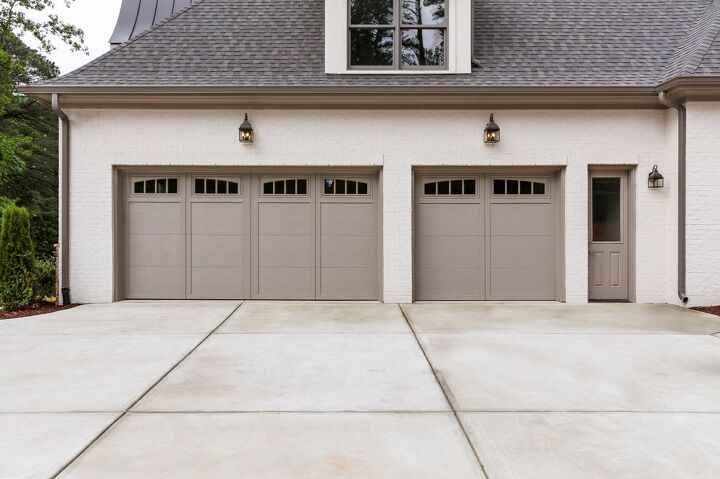






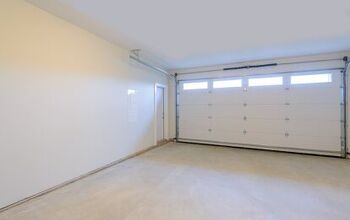
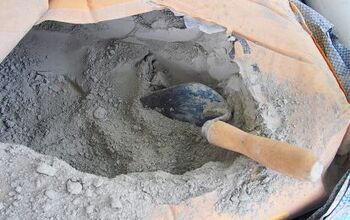
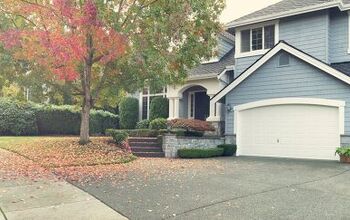
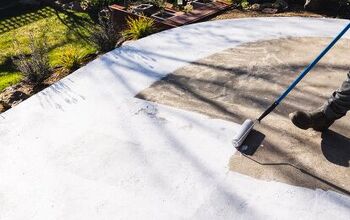

![Cost To Drill A Well [Pricing Per Foot & Cost By State]](https://cdn-fastly.upgradedhome.com/media/2023/07/31/9074980/cost-to-drill-a-well-pricing-per-foot-cost-by-state.jpg?size=350x220)






